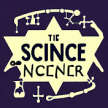The Similarities of Nietzsche's Superman and Darwin's Theory of Evolution
An Essay about The Philosophy of Nietzsche and Darwin

The concept of the "superman" as introduced by Friedrich Nietzsche and the theory of evolution as put forth by Charles Darwin are two ideas that are seemingly disparate, yet contain several striking similarities. Both of these concepts deal with the idea of growth and development, but they approach it from very different angles. In this essay, I will examine the similarities between Nietzsche's superman and Darwin's theory of evolution, and how they complement each other to offer a unique perspective on human development and the nature of existence.
Nietzsche's concept of the superman is closely tied to his ideas about the will to power and the idea of the "eternal recurrence." In his philosophy, the superman represents the highest form of human evolution, a being who has fully embraced the will to power and lives life to the fullest. Nietzsche believed that the superman was the end result of a long process of evolution, where individuals had gradually transcended their limitations and reached a higher level of consciousness. He believed that the superman was the embodiment of the will to power, and that this individual had the potential to shape their own destiny and create a new world for themselves.
Similarly, Darwin's theory of evolution suggests that species evolve through natural selection, where the fittest individuals are more likely to survive and pass on their genetic traits to future generations. This process leads to the gradual improvement of a species over time. Darwin believed that evolution was a slow, gradual process that occurred over millions of years, but that it was inevitable and unavoidable. He believed that life was a continuous struggle for survival, and that the fittest individuals would always be the ones who succeeded in this struggle.
When Nietzsche's idea of the superman and Darwin's theory of evolution are combined, they suggest that the superman is the ultimate form of human evolution, the result of natural selection pushing humanity to its limits. The superman is the individual who has fully embraced the will to power and is able to transcend the limitations of ordinary humanity. In this sense, the superman can be seen as the end product of millions of years of evolution, where the fittest individuals have survived and reached a higher level of consciousness.
Another similarity between Nietzsche's superman and Darwin's theory of evolution is the idea of individualism. Nietzsche believed that the superman was an individual who had transcended the limitations of ordinary humanity, and that this individual was free to shape their own destiny. He believed that the superman was unique, and that this individual was not bound by any particular set of rules or limitations. Similarly, Darwin believed that evolution was driven by individual differences, and that the fittest individuals were those who had the most advantageous traits. He believed that the success of a species was determined by the individual traits of its members, and that these traits were shaped by the environment in which they lived.
Both Nietzsche's superman and Darwin's theory of evolution also deal with the idea of progress and the concept of survival of the fittest. Nietzsche believed that the superman represented the ultimate form of human evolution, and that this individual was the end result of a long process of progress. He believed that the superman was the culmination of millions of years of evolution, and that this individual had the potential to shape their own future and create a new world. Similarly, Darwin believed that evolution was a slow, gradual process of progress, where the fittest individuals survived and passed on their genetic traits to future generations. He believed that evolution was driven by the struggle for survival, and that the fittest individuals were the ones who succeeded in this struggle.
In conclusion, Nietzsche's concept of the superman and Darwin's theory of evolution are two ideas that are seemingly disparate, yet contain several striking similarities. Both of these concepts deal with the idea of growth and development, but they approach it from different angles. Nietzsche's superman represents the highest form of human evolution, a being who has fully embraced the will to power and lives life to the fullest. On the other hand, Darwin's theory of evolution suggests that species evolve through natural selection, where the fittest individuals are more likely to survive and pass on their genetic traits to future generations.
When combined, these two ideas suggest that the superman is the ultimate form of human evolution, the result of natural selection pushing humanity to its limits. The superman is the individual who has fully embraced the will to power and is able to transcend the limitations of ordinary humanity. In this sense, the superman can be seen as the end product of millions of years of evolution, where the fittest individuals have survived and reached a higher level of consciousness.
In addition, both Nietzsche's superman and Darwin's theory of evolution deal with the idea of individualism, progress, and the survival of the fittest. They both suggest that evolution is a slow, gradual process that is driven by individual differences and the struggle for survival. The superman and the theory of evolution both offer unique perspectives on human development and the nature of existence, and they complement each other in offering a comprehensive understanding of the world and our place in it.
About the Creator
Dawnell Despi
I am a passionate writer who is dedicated to exploring topics related to health, philosophy, and environment. With a deep interest in promoting wellness and sustainability, I aim to educate, promote and inspire others through my writing.






Comments
There are no comments for this story
Be the first to respond and start the conversation.